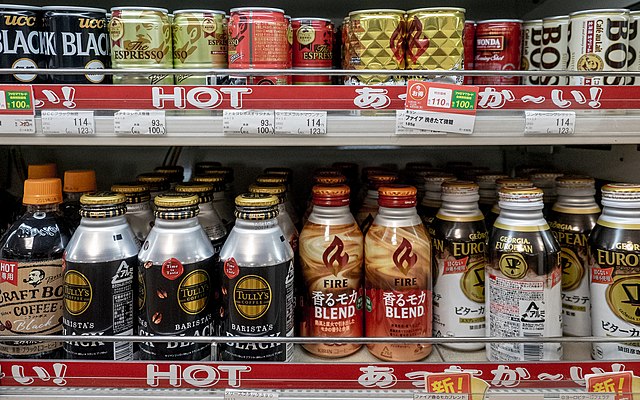
Have you ever wondered why coffee has become such an integral part of everyday life? Coffee has been around for centuries, yet its popularity has only grown over time. It is consumed in almost every corner of the planet, with an estimated 2.25 billion cups of coffee consumed every day. Coffee has become much more than just a caffeine fix; it has become a cultural symbol and a way of life. Uncovering the wonders of coffee is a journey through time and space, exploring the many aspects of its production, history, and culture. From its origins in Ethiopia thousands of years ago, to its present-day status as a global commodity, coffee has evolved into a complex and interesting beverage. Through this exploration, you will gain a better understanding of the history and culture of coffee, and why it has become such an integral part of our lives.
What is Coffee?
Coffee is a brewed beverage made from roasted coffee beans. The flavor of coffee varies depending on the type of bean, the roast and the brewing method used.
Coffee has a long and complex history, and its popularity has grown steadily over the centuries. From there, it spread to the Middle East and eventually to Europe. By the 18th century, coffee had become a popular beverage in Europe and the Americas.
Coffee Origins and History
Coffee is believed to have originated in Ethiopia. The earliest evidence of coffee consumption dates back to the 9th century, when the Ethiopian people began to cultivate and consume the coffee beans. From Ethiopia, coffee spread to the Middle East and then to Europe. By the 17th century, coffee had become popular in Europe, and coffeehouses began to open in cities across the continent.
The popularity of coffee in Europe led to its introduction to the Americas in the 17th century. Coffee quickly became a popular beverage among colonists and slaves in the Caribbean and South America. By the 18th century, coffee had become an important part of the economy in these regions.
Different Types of Coffee
Coffee is made from a variety of different beans, each with its own unique flavor and characteristics. The most popular types of coffee beans are Arabica and Robusta. Arabica beans are considered to be of higher quality and have a sweeter, more delicate flavor. Robusta beans are lower quality, but they have a more intense flavor and higher caffeine content.
In addition to the type of bean, the roast level of the coffee also affects the flavor. Coffee can be light, medium, or dark roasted. Light roasted coffee has a mild flavor and is usually lighter in body. Medium roasted coffee has a fuller flavor and is usually more balanced in body. Dark roasted coffee has a stronger flavor and is usually heavier in body.
The Coffee Trade and Production
The coffee trade has a long and complex history, and it has grown substantially over the centuries. Coffee is now grown in many countries around the world, from Brazil to Vietnam. Coffee production is a complex process, and it requires a great deal of knowledge and skill to produce high-quality coffee. The beans must be carefully grown, harvested, and processed, and the roasting process must be carefully controlled to bring out the desired flavor.
The coffee trade is highly competitive, and it is dominated by a few large companies. These companies control the production and distribution of coffee, and they are responsible for setting the prices of the beans.
Exploring Coffee Culture
Coffee culture is an integral part of the modern world. From the bustling cafe scene in Europe to the small-scale coffee farmers in Latin America, coffee is a part of everyday life for millions of people around the world. Coffee has become a symbol of social interaction, and it is a way to connect with friends and family.
Coffee culture also includes the ritual of brewing and drinking coffee. From the espresso in Italy to the pour-over in the United States, there is no shortage of ways to enjoy a cup of coffee.
Brewing Techniques
Brewing coffee is both an art and a science. Different brewing techniques produce different flavors, and it is important to understand the basics of brewing in order to get the most out of your coffee. Two of the most popular brewing methods are the French press and the pour-over.
The French press is a popular method of brewing coffee. This method involves steeping the coffee grounds in hot water before pressing the plunger down to separate the grounds from the liquid. This method produces a strong, full-bodied cup of coffee.
The pour-over method is a more delicate brewing technique. It involves pouring hot water over the coffee grounds in a slow and steady stream. This method produces a clean, balanced cup of coffee.
Health Benefits of Coffee
Studies have shown that drinking coffee can help reduce the risk of certain diseases, such as diabetes, Parkinson’s disease, and certain types of cancer. Coffee is also a good source of antioxidants, which can help protect against oxidative damage to the body.
Too much caffeine can lead to jitters, anxiety, and insomnia, so it is important to be mindful of your caffeine intake.
Enjoying Coffee Around the World
From the espresso culture of Italy to the cold brews of Japan, each country has its own unique way of enjoying coffee. Exploring the different coffee cultures of the world is a great way to gain a better understanding of the history and culture of coffee.
In Italy, espresso is the preferred method of brewing coffee. Espresso is made with finely ground coffee beans and brewed under pressure, resulting in a concentrated, intense cup of coffee. This produces a smooth, mellow cup of coffee with a unique flavor.
How Coffee is Transforming Lives
Coffee is not just a beverage; it is also a source of income for millions of people around the world. Coffee is grown in more than 50 countries.
The coffee industry is also transforming lives in other ways. From the introduction of sustainable farming, the coffee industry is helping to improve the lives of farmers and their communities.
Conclusion
Coffee is a complex and fascinating beverage with a deep and rich history and culture. From its origins in Ethiopia to its present-day status as a global commodity. Coffee has evolved into a beloved beverage enjoyed by millions of people around the world.







